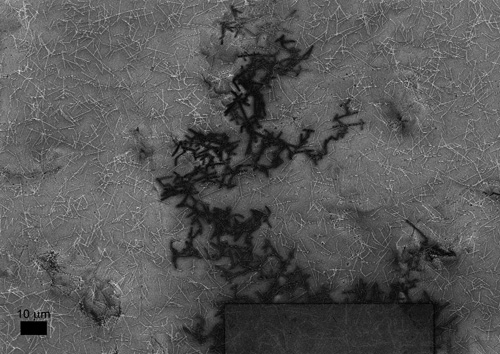European Research Council Awards €2.5 million to Trinity Nanoscience Researcher
Posted on: 04 April 2013
Professor John Boland’s world leading nanowire research could lead to computers that mimic functions of human brain
Professor John Boland, Director of CRANN, the SFI-funded nanoscience institute based at Trinity College Dublin, and a Professor in the School of Chemistry has been awarded a €2.5 million research grant by the European Research Council (ERC).
This is the second only Advanced ERC grant ever awarded in Physical Sciences in Ireland. It represents the maximum amount of funding available for an individual.
The Award will see Professor Boland and his team continue world-leading research into how nanowire networks can lead to a range of smart materials, sensors and digital memory applications. The research could result in computer networks that mimic the functions of the human brain and vastly improve on current computer capabilities such as facial recognition.
Nanowires are spaghetti like structures, made of materials such as copper or silicon. They are just a few atoms thick and can be readily engineered into tangled networks of nanowires. Researchers worldwide are investigating the possibility that nanowires hold the future of energy production (solar cells) and could deliver the next generation of computers.

A nanowire network- the electrical connectivity of such networks can be visualised using a Scanning Electron Microscope in CRANN’s Advanced Microscopy Laboratory
Professor Boland has discovered that exposing a random network of nanowires to stimuli like electricity, light and chemicals, generates chemical reaction at the junctions where the nanowires cross. By controlling the stimuli, it is possible to harness these reactions to manipulate the connectivity within the network. This could eventually allow computations that mimic the functions of the nerves in the human brain – particularly the development of associative memory functions which could lead to significant advances in areas such as facial recognition.
Commenting on the significance of the Award, Professor John Boland said: “This funding from the European Research Council allows me to continue my work to deliver the next generation of computing, which differs from the traditional digital approach. The human brain is neurologically advanced and exploits connectivity that is controlled by electrical and chemical signals. My research will create nanowire networks that have the potential to mimic aspects of the neurological functions of the human brain, which may revolutionise the performance of current day computers. It could be truly ground-breaking.”
Professor Mark Ferguson, Director of Science Foundation Ireland said: “I’d like to congratulate Professor Boland on successfully securing a prestigious ERC award. The award of an ERC Advanced Grant to Prof Boland, when considered alongside the three ERC Starting Grants already held by CRANN colleagues, demonstrates both the excellence of Prof Boland’s research and also the quality of the research team that has been built in CRANN with significant support from SFI. With researchers like Professor John Boland investigating some of the most exciting materials science breakthroughs, the future for nanoscience research in Ireland looks very bright. SFI is determined to improve Ireland’s overall performance in the ERC funding schemes; CRANN’s successes demonstrate that Irish based researchers can compete successfully for ERC awards.”
European Research Council awards are awarded for projects that are highly ambitious and pioneering, and aim to allow exceptional research leaders to pursue ground-breaking, high-risk projects.
